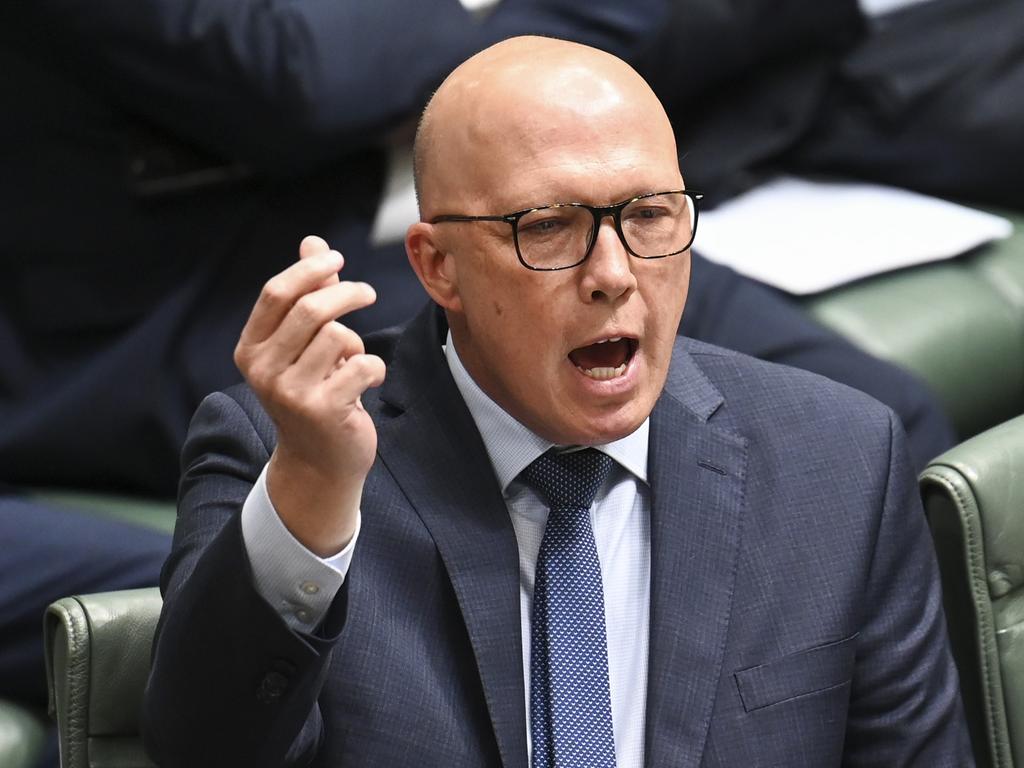How ‘availability creep’ is dimming our love affair with work
Career passion, smart tech and flexibility have all contributed to blurring the boundaries between work and home. How do we redraw the lines for the 21st century?

Twenty years ago, the idea of people having a love affair with their work was not only acceptable but very desirable.
Unions might warn against throwing everything into the relationship with your employer but the promise that the boss had your back was too much for most white-collar workers.
The old way of working when nine-to-five effort was rewarded with a decent wage and working conditions had morphed into a relationship in which personal, so-called discretionary, effort was potentially infinite. This was a love affair that promised big rewards for connection, one in which a “right to disconnect” seemed as disloyal as an extramarital affair.
Not that such a right was widely articulated. It would take until 2017 for the French (so easily stereotyped as indulged, if not lazy) to give their workers the right to negotiate for the right to say no. Other European countries followed, but in the US and here in Australia the title of the 2004 book I co-authored with Catherine Fox resonated. Better Than Sex: How a Whole Generation Got Hooked on Work described a world where the transactional contract had been replaced by an “always on” approach.

Work was no longer about us and them, about capital v labour. As HR departments positioned themselves as the “new unions”, employees joined bosses in a project in which work, rather than family or religion or community, was at the centre of our lives.
It would take a pandemic, a new generation of digital devices and a new set of workers before the Senate last week passed the “right to disconnect” law that sparked an extraordinary public debate.
Employers protested there had been no community pressure for a law and that it would end flexibility and harm productivity.
But the surge of radio interviews, news stories and social media posts told a different story – one that might have surprised even the Labor politicians who introduced the law under pressure from the Greens. Any doubt that “availability creep” is a thing has been dispelled as the legislation became a catalyst for a broader conversation about work in 2024.
Some may see the law through a left-right lens; some may lament a “woke” workforce becoming lazy as well as litigious; but disconnect is an issue beyond ideology.

Don’t get hung up on the detail. There are reportedly a stash of problems with the hurriedly drafted legislation, with the incorrect inclusion of criminal penalties only one of the issues to be fixed. But the mistakes will be repealed; litigation will likely be minimal; and precise policies will be increasingly enshrined in workplace agreements rather than fought over in the Fair Work Commission.
The Coalition says it will repeal the law, but has the horse bolted? There are already 58 organisations – from banks, to police forces, to universities – with agreements on unreasonable after-hour requests.
Knowledge workers are unlikely to have to resort to the law, given their employers have led the way on flexibility and increasingly understand that happy workers hang about, even in a tight labour market.
It’s true managers will have to navigate another set of principles (the Australian Industry Group says the law is impractical), but the biggest impact will be on workplace culture. And however it pans out, a conversation that goes beyond casual work and the gig economy – the key elements of the new legislation that have been sidelined by the disconnect debate – and looks at how the great bulk of Australian workers are faring is overdue.

It’s not clear, says Gartner researcher Aaron McEwan, precisely when work went from transactional to discretionary, but it was deeply embedded by the turn of the century.
“I don’t know at what point we bought into that, but what I do know is there was a period, maybe in the 1980s, when people were deeply connected to their communities,” he says.
“Australia had some of the highest volunteerism in the world, we were members of bowling clubs and golf clubs … Somewhere along the line we got convinced that you didn’t need to have a life outside of work, that your employer could provide you with a social group, a sense of purpose, connection to community, a reason for living. Employers genuinely believed they could be everything to everybody.”
By the ’90s, technology, the shift to services and knowledge work meant the boundaries around work had virtually disappeared. The weekend was sacrosanct but work seeped into our nights and early mornings.
Fast forward to 2020 and a pandemic that boosted productivity as employers amped up digital to enable remote work. Employees worked through sick days and went back to the computer after dinner.
“But what the pandemic also taught us,” says McEwan, “was that we need purpose, connection, meaning, and that you can get it (outside the office). It’s that moment when you go, ‘Actually, work is just this thing that provides me with an income, it’s not this thing where my identity is completely wrapped up in my job.’
“The pandemic broke open the notion of flexibility. We knew it already, but the combination of technology that follows you everywhere and full flexibility (had a) dangerous flip side. You just can’t get away, you can’t disconnect.”
There were other influences on a generation logged into social media and Reddit conversations about quiet quitting and #lazygirlsyndrome and whether work delivered everything it promised.
As McEwan says: “I don’t know if kids today jump on Tinder and go, ‘What do you do for a living?’ ”
He says discretionary effort was always given on the condition there would be a return: work hard and you’ll be promoted, earn a decent wage, be able to buy a house, put your kids in private school and live happily ever after. That contract has broken for many.
“Now you won’t get a house, you probably won’t get promoted, you’ll get some training but it’s going to be some crappy e-course,” McEwan says. “All that discretionary effort has been gobbled up into the system, and has essentially gone into disgusting payouts for executives. At a very basic level, people are like, ‘No, you’re going to have to pay for that discretionary effort – give me the right to disconnect and I’ll give you my discretionary effort.”
He says business growth strategies are built on an assumption of that extra effort and we can’t afford to take it out of the system.
He advises his clients: “Your job is not to bring your employees into your ‘family’ and provide everything for them. You should be in the business of helping people live meaningful lives. If you do that, then they will put in the discretionary effort.”
As the psychosocial health of employees is increasingly recognised (including by law) as a key business responsibility and risk, the question is whether either side can be trusted to patrol the boundaries of life and work.

We’re all adults, right? We can negotiate these issues, right? Maybe, says McEwan. He notes we already have “disconnect” rules in place. For example, we don’t let pilots fly planes over a certain period because we know it is dangerous.
McEwan argues the right to disconnect will have a pay-off for employers in the productivity of workers who are no longer mentally exhausted.
While more data analysis is needed to understand why productivity tapered off after the initial pandemic boost, he believes it was because workers could not escape their work while working at home and were not switching off.
The Greens, led by one of the nation’s leading researchers on work, Senator Barbara Pocock, were the prime movers in the disconnect policy but McEwan says employers soon would have known something was wrong.
“You’ve already got a whole bunch of employees with their own health systems strapped to them who are saying, ‘The way I’m working is bad for me and unsustainable,’ ” he says.
“So when employers put the algorithms in control and say, ‘Hey, measure the productivity of my workforce’, what those robots are going to say is, ‘Well, isn’t it interesting that when people have seven or eight hours of sleep and they finish their days appropriately and they have good boundaries, they tend to perform?’ ”

Ai Group argues there are already provisions in the Fair Work Act and awards that regulate the extent to which employees can be required to work outside normal hours. Its original response to the law was low key, included in a much longer press statement criticising other elements of the IR legislation that cover casual and gig economy workers.
But as the debate took off last weekend and chief executive Innes Willox did more than a dozen radio interviews while Ai Group fielded a swag of media inquiries, he was more forthright.
This newspaper reported on Monday Willox’s warning that the law could reduce flexibility as employers cut back on staff leaving early to pick up the kids or going to the dentist if employees played hardball. The “tacit agreements” on after-hours engagement would have to be negotiated more formally, with attendant risks.
HR consultancy Shilo People chief executive Ilona Charles says it is debatable whether we need legislation. She worries, too, that the provisions look very general and thus leave room for wide interpretation. Like many, she was surprised by legislation that seemed to come out of the blue without much public discussion. But she says, post-Covid, some employers are doubtless taking advantage of people’s increased accessibility.
“It would be lovely if all employers did the right thing, and respected people’s work and home lives, but this legislation is trying to address those who don’t,” she says.
“The lines are very blurred and the technology is not going to go away, so we need to work out how we better manage the boundaries. A lot of people at all levels, from junior up to quite senior people, feel they can’t switch off.”

Charles agrees some people fear saying no will result in them being seen as not truly committed but says: “That has always been around … If you see your leader being on call for ridiculous hours, a lot of people feel they have to do the same to get to that level.
“It comes down to leadership behaviour. What sort of role modelling are we doing at the senior levels about what is acceptable and what isn’t and how much pressure do people feel?”
It’s not only employers who exert pressure for after-hours engagement.
The Independent Education Union of Australia told a Senate committee last year of the increasing pressure on teachers to be accessible to pupils and parents outside regular school hours. Digital apps could create connection between parents and teachers 24/7, with parents arguing: “I know you’ve seen my message. I know you saw it then, and you haven’t responded until this point in time.”
Given we now have a disconnect law (although it will take six months to come into effect and up to 18 months before it applies to all employers), the question is how it develops alongside other changes in the workplace.
Should companies leverage the law to shape the workplaces they really want post-Covid? Is a good disconnect policy, implemented with care, the way to bring back the discretionary effort so vital to knowledge work in the 21st century? Can this law be the carrot to get people back to the office and even end the calls from some workers for a four-day week?
McEwan says clear rules about after-hours work will increase worker commitment and productivity. He considers it could well relieve the pressure from employees for a shorter week.
“One of the things that became sacrosanct for knowledge workers was the weekend,” he said.
“You could be expected to take calls at 1am, or 5am, but very few employers really pushed the need to work on the weekend.”
But as the weekend, too, was threatened, employees argued for a four-day week as the solution. But, says McEwan, “if we genuinely had the right to disconnect, we wouldn’t need a four-day work week. What happens today is people are so exhausted by the time the weekend comes that they spend the first day recovering.
“If people had the right to disconnect, and we had cultures that supported that in a healthy way, we probably wouldn’t be having a conversation about a four-day week.”







To join the conversation, please log in. Don't have an account? Register
Join the conversation, you are commenting as Logout